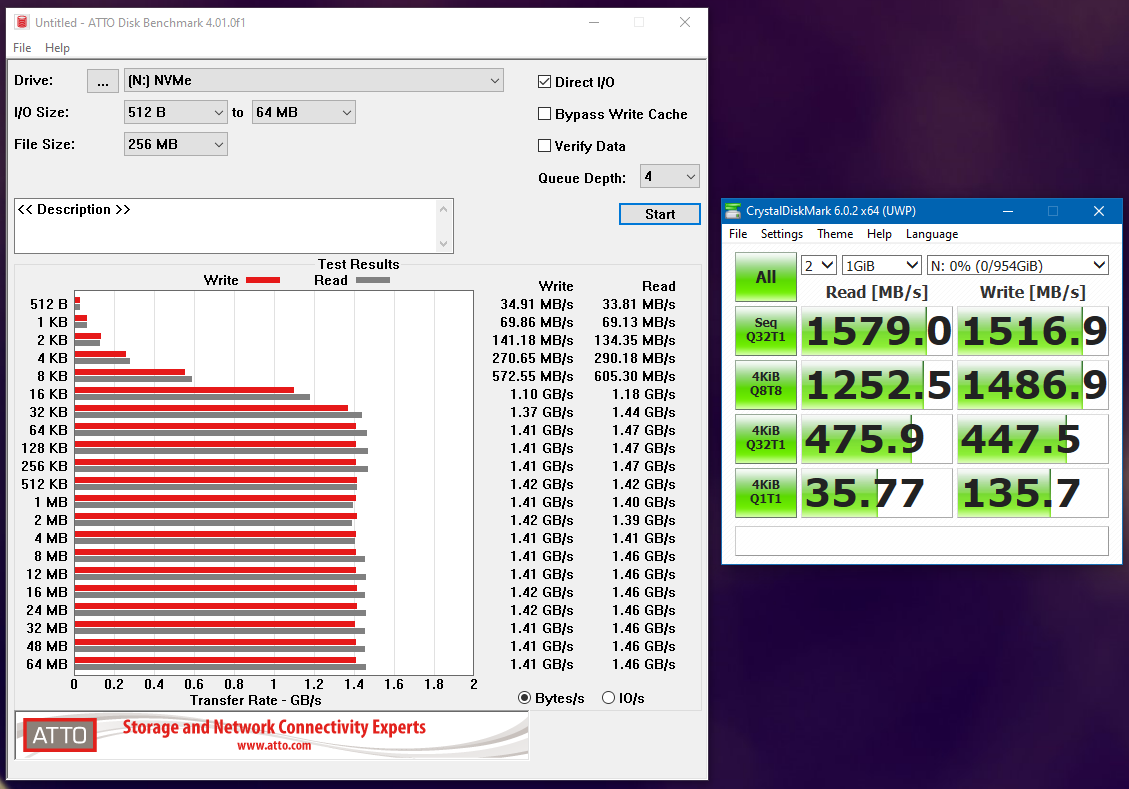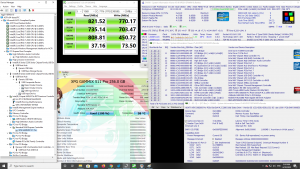Unknown-One
[H]F Junkie
- Joined
- Mar 5, 2005
- Messages
- 8,909
Has anyone tried slapping a modern NVMe SSD into a PCIe 4x slot that's provided by the chipset via DMI 2.0?
In theory, a good SSD is enough to totally saturate DMI 2.0 all on its own, and there are other devices sharing that bandwidth. I'm curious if the chipset will prioritize certain devices over others in order to prevent heavy load on the SSD from causing the integrated ethernet, sound, USB, and SATA from bogging down.
In theory, a good SSD is enough to totally saturate DMI 2.0 all on its own, and there are other devices sharing that bandwidth. I'm curious if the chipset will prioritize certain devices over others in order to prevent heavy load on the SSD from causing the integrated ethernet, sound, USB, and SATA from bogging down.
![[H]ard|Forum](/styles/hardforum/xenforo/logo_dark.png)

